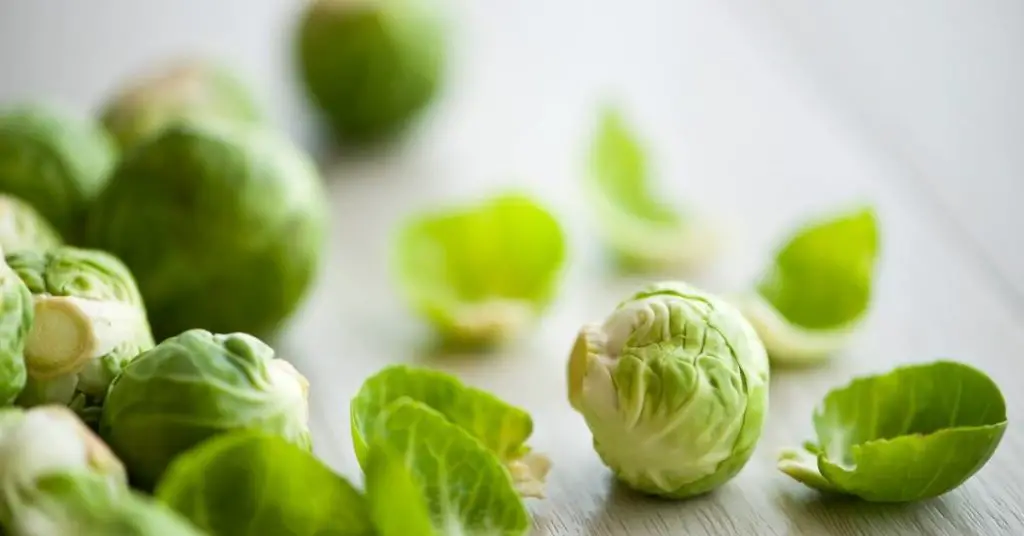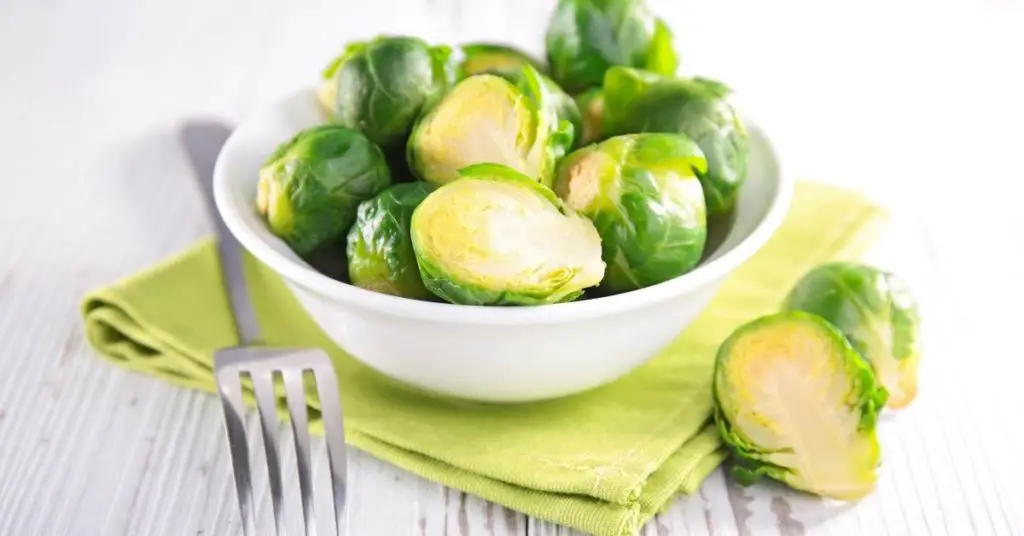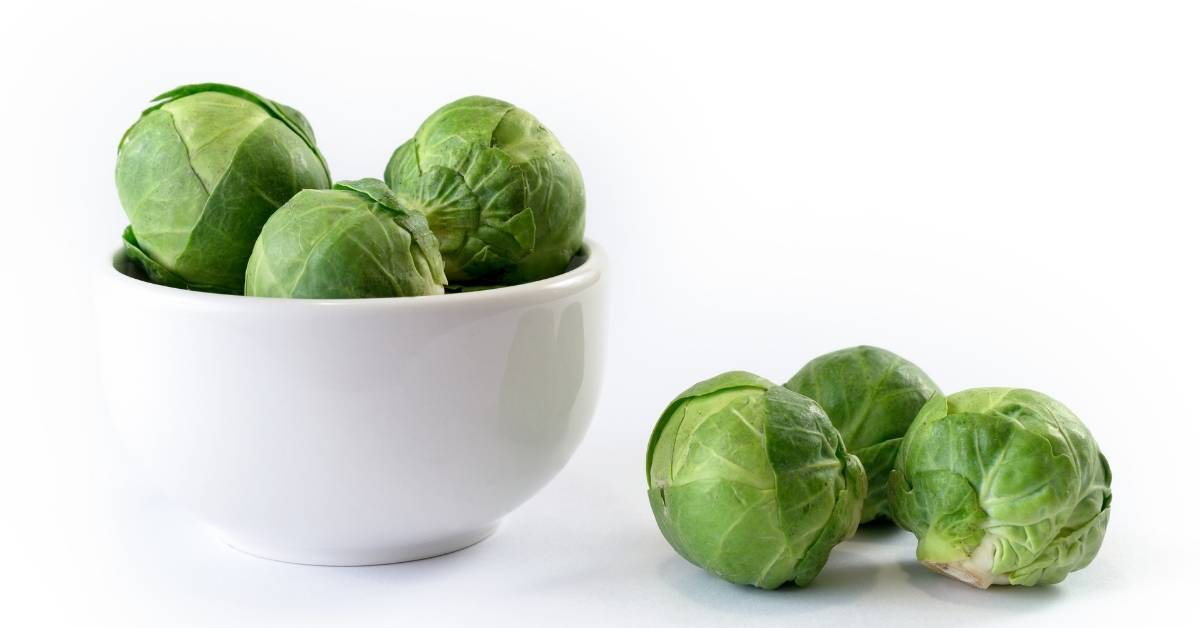When it comes to managing histamine intolerance, dietary choices play a key role in managing your symptoms. What you eat matters when it comes to lowering your body’s histamine burden. Many, but not all, vegetables are low in histamine.
But what about Brussels sprouts? Are Brussels sprouts high in histamine? Let’s look at what science shows about Brussels sprouts, histamine, and whether they contain other biogenic amines that can cause sensitivity reactions in some people.
First, let’s briefly get you up to speed on how diet rich in histamines can worsen the symptoms of histamine intolerance. Ready to get started?
The Histamine Conundrum
The root of histamine intolerance lies in the body’s struggle to metabolize histamine, a chemical found naturally in certain foods and produced internally. (4) This impaired breakdown can trigger unpleasant symptoms ranging from headaches to hives to digestive upset. The symptoms can vary significantly from person to person. So, your histamine intolerance symptoms may be different from another person with this condition, even if you eat the same diet.
Histamine forms when particular bacteria or yeasts transform the amino acid histidine into histamine. (4) Consequently, any food containing protein could yield histamine given the right circumstances. Getting to the bottom of histamine intolerance requires understanding the interplay between histamine, its production, and metabolic breakdown.
Historically, aged and fermented foods or beverages have been the primary culprits, containing elevated levels of histamine. In contrast, fresh foods typically harbor minimal histamine levels. That’s why it’s best to avoid eating leftovers and foods that aren’t at their freshest.
Fortunately, fresh Brussels sprouts are not high in histamine. However, some vegetables, like eggplant, avocado, tomatoes, are high in histamine and are not safe foods if you’re following a low-histamine diet. That’s why it’s important to question each food you eat if you have histamine intolerance.

Are There Histamines in Brussels Sprouts?
There’s no one size fits all when it comes to a low-histamine diet. Be aware that individual responses to Brussels sprouts can vary. Factors such as the freshness of Brussels sprouts, the methods used in cooking, (5) and storage conditions all have the potential to influence histamine levels in this popular cruciferous vegetable.
While there isn’t a universally standardized method for quantifying histamine in foods, sources consistently show that Brussels sprouts are low in histamine. However, you should also be aware of your own tolerance level, as we’re all a little different and have differing food sensitivities.
Keep a food diary, so you can track your symptoms if you add a new food, like Brussels sprouts, to your diet. If histamine intolerance is a concern, seeking guidance from a dietitian to navigate the diet and understand individual requirements is advisable.
Do Brussels Sprouts Contain Other Biogenic Amines?
Beyond histamine, which is one type of biogenic amine, you might wonder whether Brussels sprouts contain other biogenic amines, low molecular weight organic bases that serve physiological functions in humans. However, some people are sensitive to even small quantities.
While fresh Brussels sprouts are not known to contain biogenic amines, fermented Brussels sprouts do. One study found that the predominant biogenic amines in fermented Brussels sprouts include putrescine (42%), tyramine (20%), cadaverine (18%), and histamine (8%). (1)
So, fermented Brussels sprouts, as opposed to fresh, contain bioactive amines and even some histamine that fresh do not. This shows that the quantity of biogenic amines in Brussels sprouts can vary based on factors such as freshness, cooking methods, and storage conditions. (5) Fresh is better and you should avoid fermented Brussels sprouts, leftovers, and ones that have sat for long periods of time.
While biogenic amines are organic compounds present naturally in foods. (4) Although they don’t trigger symptoms for everyone, consuming lots of them can have negative effects for some people, especially those with certain health issues or taking specific medications. Plus, there’s some evidence that some biogenic amines could promote cancer. (3)
This highlights the value of eating foods rich in biogenic amines in moderation. Determining optimal consumption levels means understanding your own sensitivity and listening to your body’s signals.

Conclusion: Are Brussels Sprouts High in Histamine?
Brussels sprouts offer a promising avenue for individuals navigating histamine intolerance. Their low histamine content and versatility make them an attractive choice for a low-histamine diet. Plus, Brussels sprouts pack a nutritional punch in a petite package. Just one cup contains a range of vitamins and minerals, including vitamins C and K.
As a cruciferous vegetable, Brussels sprouts provide glucosinolates, compounds which may offer anticancer and detox properties. (2) And with nearly 3 grams of fiber per cup, these mini cabbages can support digestive and heart health. Adding Brussels sprouts to your plate provides nutrients to nourish your body.
But know that individual responses to histamine and biogenic amines can vary. Pay close attention to personal tolerance levels and seeking professional guidance can ensure a tailored and effective dietary approach.
References:
- Świder O, Roszko MŁ, Wójcicki M, Szymczyk K. Biogenic Amines and Free Amino Acids in Traditional Fermented Vegetables-Dietary Risk Evaluation. J Agric Food Chem. 2020 Jan 22;68(3):856-868. doi: 10.1021/acs.jafc.9b05625. Epub 2020 Jan 10. PMID: 31891502. https://pubmed.ncbi.nlm.nih.gov/31891502/
- Nijhoff WA, Grubben MJ, Nagengast FM, Jansen JB, Verhagen H, van Poppel G, Peters WH. Effects of consumption of Brussels sprouts on intestinal and lymphocytic glutathione S-transferases in humans. Carcinogenesis. 1995 Sep;16(9):2125-8. doi: 10.1093/carcin/16.9.2125. PMID: 7554064. https://pubmed.ncbi.nlm.nih.gov/7554064/
- Wójcik W, Łukasiewicz M, Puppel K. Biogenic amines: formation, action and toxicity – a review. J Sci Food Agric. 2021 May;101(7):2634-2640. doi: 10.1002/jsfa.10928. Epub 2020 Dec 12. PMID: 33159318.https://pubmed.ncbi.nlm.nih.gov/33159318/
- Martuscelli M, Esposito L, Mastrocola D. Biogenic Amines’ Content in Safe and Quality Food. Foods. 2021 Jan 6;10(1):100. doi: 10.3390/foods10010100. PMID: 33418895; PMCID: PM Shulpekova YO, Nechaev VM, Popova IR, Deeva TA, Kopylov AT, Malsagova KA, Kaysheva AL, Ivashkin VT. Food Intolerance: The Role of Histamine. Nutrients. 2021 Sep 15;13(9):3207. doi: 10.3390/nu13093207. PMID: 34579083; PMCID: PMC8469513. C7825060. https://pubmed.ncbi.nlm.nih.gov/33418895/
- Chung BY, Park SY, Byun YS, Son JH, Choi YW, Cho YS, Kim HO, Park CW. Effect of Different Cooking Methods on Histamine Levels in Selected Foods. Ann Dermatol. 2017 Dec;29(6):706-714. doi: 10.5021/ad.2017.29.6.706. Epub 2017 Oct 30. PMID: 29200758; PMCID: PMC5705351.
.

